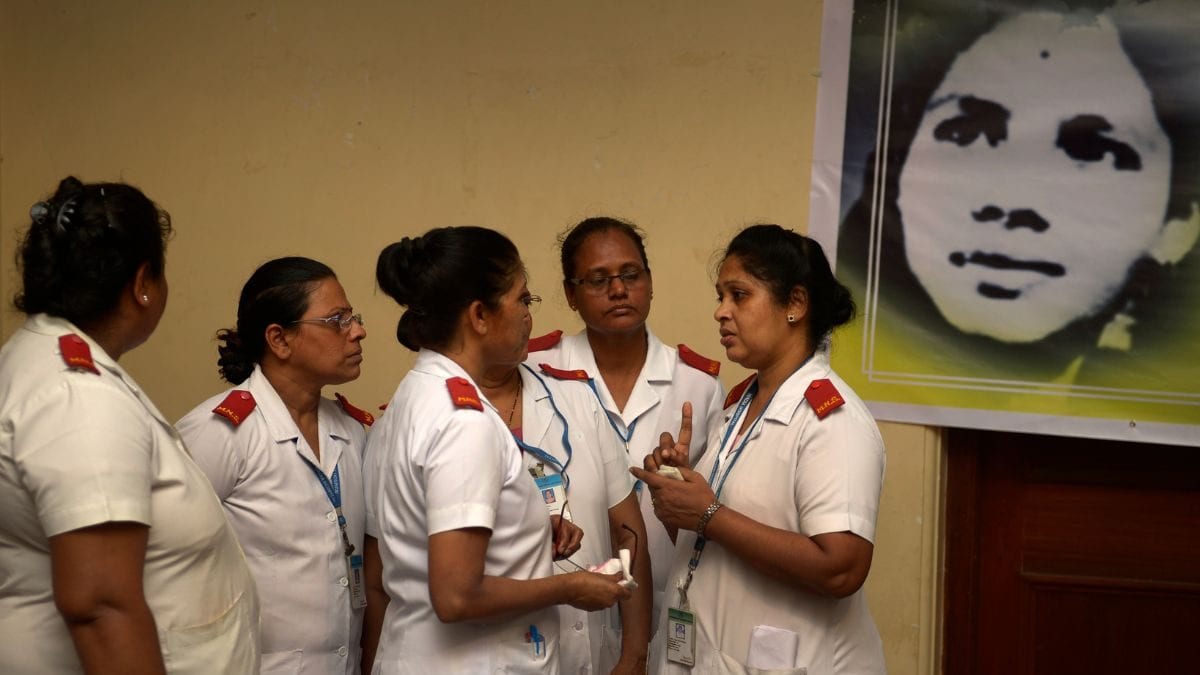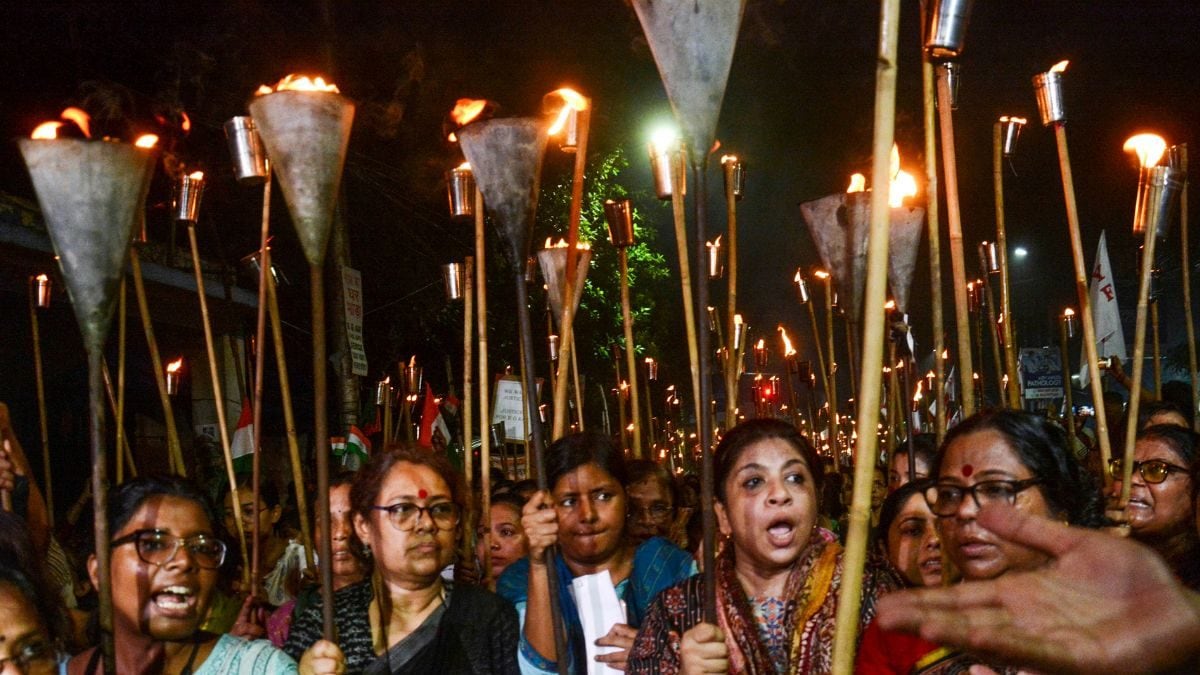Reported By: Pallavi Ghosh
Last Updated:

It was 1973 when Aruna Shanbaug, a 25-year-old nurse at the KEM hospital, was raped and strangulated with a dog chain by a sweeper, pushing her into a vegetative state. (Getty)
A nurse at KEM Hospital told News18 on the condition of anonymity that the RG Kar case, where a young doctor was brutalised and murdered, has brought back questions on women’s safety in workplaces
The heinous rape and murder of a young doctor at Kolkata’s RG Kar Hospital has brought the spotlight back on conditions of work and inadequate safety for women staff in hospitals where both doctors and nurses are vulnerable.
It has also revived memories of a nurse who was brutally assaulted at work many years ago — a case that changed the trajectory of the country.
It was 1973 when Aruna Shanbaug, a 25-year-old nurse at the KEM hospital, went to her duty room in the basement of the hospital. It was here that a sweeper named Walmiki accosted her and raped her. However, the brutality did not end there. She was strangulated by a dog chain and left to suffer. When the staff of the hospital discovered her, her spinal cord was broken and she had been in a vegetative state for 24 hours. The nurses of the hospital looked after Shanbaug till a landmark judgment by the Supreme Court allowed passive euthanasia to give her relief, forever altering the legal and moral discourse of the country.
Shanbaug’s death and the love and care she received from fellow nurses — many of whom joined the hospital several years after her rape — raised several questions over the security at work for nurses.
I recall visiting the hospital for coverage and many nurses who spoke to me told me they were scared to even go to the basement for fear that the “same thing will happen to us”. Over years, the KEM hospital has shifted the changing and duty room to a floor above with better security measures.
When Shanbaug was assaulted, there was no concept of CCTV cameras. Though the culprit was caught, the nurses who took care of Shanbaug said “the process of getting justice was the punishment”. “We looked after her and would often wonder whether we could be next or how safe were we. Our families asked us to give up work but Aruna’s state made our resolve to get better facilities stronger.”
Over 50 years later, the RG Kar case has once again revived the issue of how safe workplaces are for nurses and women doctors, given that this is one job that brings them face-to-face with people. “It could also mean that heinous moment when things could go wrong,” is how a nurse at the KEM Hospital termed it.
Shanbaug’s case was also one where she had snubbed the overtures of the sweeper. Walmiki, at that point, had denied rape or sodomy of a menstruating Shanbaug. He was initially let off after a seven-year jail term but then times caught up with him.
Nurses on duty told me then that Walmiki often proposed to Shanbaug but she had rejected him. This is what was believed to have angered him and he was keeping track of her daily movements.
The 25-year-old’s assault, long wait for justice and a judgment which changed the debate on euthanasia has been captured in a book by her petitioner Pinky Virani named ‘Bitter Chocolate’.
A nurse in the hospital on the condition of anonymity told News18 that the RG Kar case has instilled the same fear in the community once again. “Women at work, whether nurses or doctors, work hard as it’s a noble profession. But when we heard about the state of the victim at RG Kar, I wondered whether things have really changed since the Aruna incident,” she said.
As protests emerge across the country and the CBI probes the Kolkata case, many are reliving Shanbaug’s moments as it brings to mind the nagging question — how safe are women at work?








